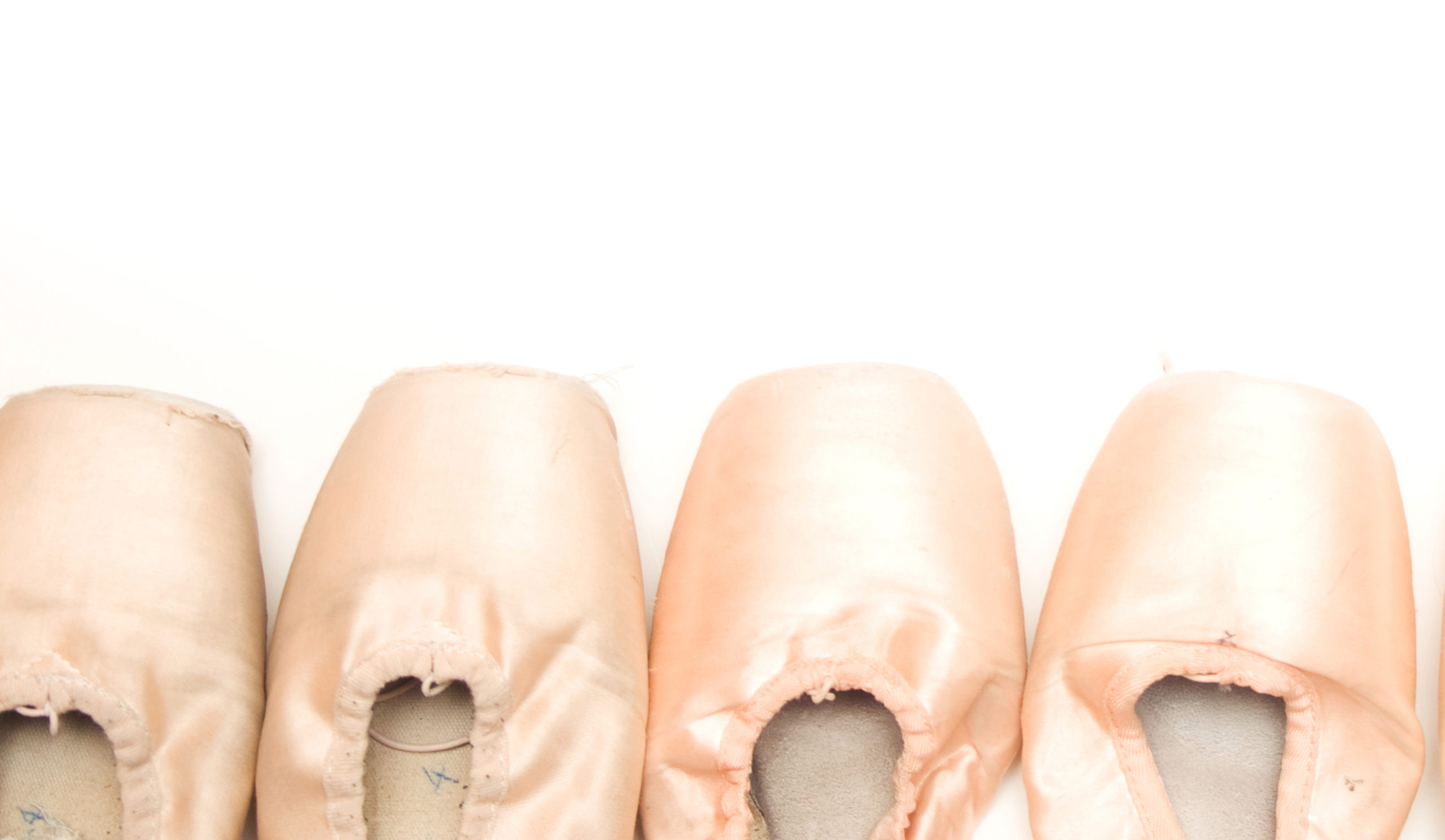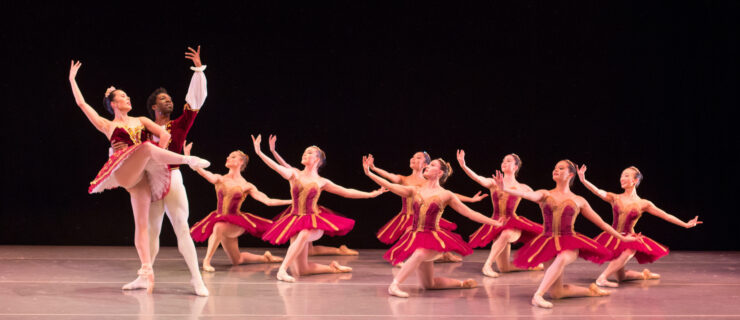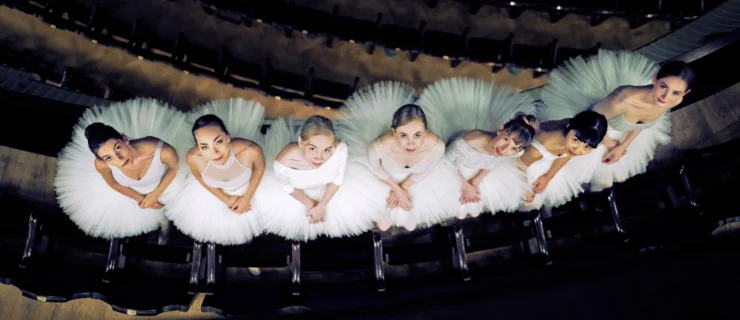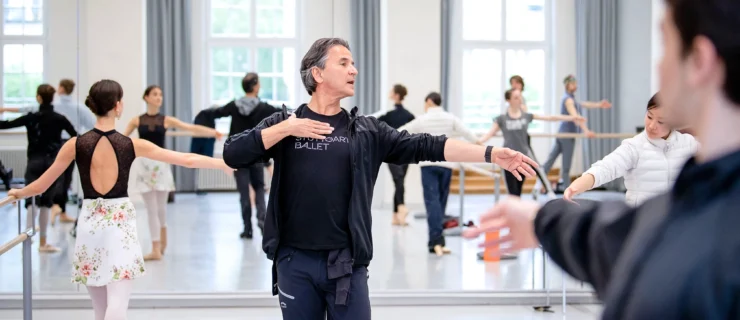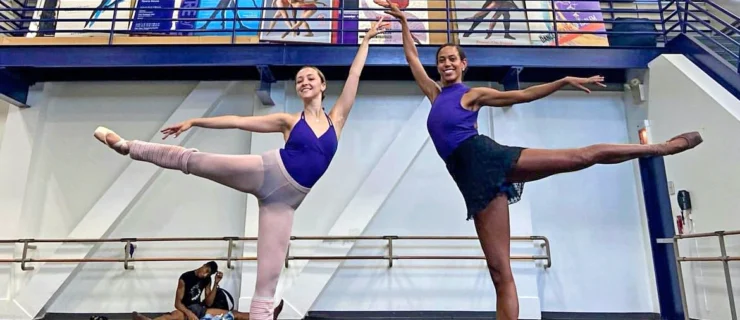Competitive Edge: Are You Ready?
Talent is everything, right? When it comes to ballet competitions, it may just be one piece of a larger puzzle. Even the most gifted performers find that competing presents challenges.
There are many reasons to compete: to test your technique, to network with schools and companies, to show off your skills. But the pressure is never higher than when professionals are judging your every move. How do you know if you’re ready to handle it? For most dancers, the answer takes some soul-searching.
Are You Advanced Enough?
Edward Ellison, director of Ellison Ballet, only allows students to compete once they have a sufficient technical base: correct muscular development, strength, musicality and coordination. You may be the most advanced dancer at your studio, but how does your technique stack up in the larger dance world? Get a frank evaluation by taking master classes, workshops and summer intensives or by auditioning for a more rigorous school. If your skills aren’t yet strong enough for you to go head-to-head with your peers, seek out private lessons or add extra lower-level classes to your schedule.
Are You Comfortable Performing?
Onstage, anything can happen, from hairpins flying to music stopping. Your ability to adapt can make or break you. “Before you compete, you need stage skills,” says Shelly Power, associate director of Ben Stevenson Academy at Houston Ballet. “The wing space may be different, the stage may be smaller than expected. You need to know how to manage that.” Rack up as much stage time as possible to learn how to deal with surprises. In addition to performing in Nutcrackers and spring shows, join a local youth troupe or volunteer for events like fundraisers.
Do You Have a Professional Mentality?
Making a variation competition-ready takes maturity. Successful competitors put their full faith in a coach, absorbing corrections and following advice. Dancers also need to think long-term. “You can’t make bad compromises like losing weight in unhealthy ways to show up thin,” says Power, “or pushing yourself too hard to get the tricks, or developing only one side of the body from too much rehearsal.” Your long-term career should take precedence over one competition.
Can You Handle the Stress?
Dancing in front of judges is not the same as for friends and family. Competing requires a strong mental constitution, and a willingness to go for broke. “You can’t be afraid to fail,” says Ellison. Be willing to let your ambitious side work to your advantage. However, Power warns that dancers should be confident, but not cocky. And she looks at their reactions to criticism: “A critique should be put in your pocket, not your heart.” It takes resilience to come home without a medal and go back into the studio with the same enthusiasm.
Do You Need to Network?
Competitions offer benefits that have nothing to do with how you place. While the glory of a medal lasts a moment, a scholarship could lead to your dream career. “Know why you are competing,” says Ellison. “Are you hoping to receive a scholarship, to land a contract, or simply to further your artistic and technical growth?” Clarify your goals so you arrive prepared.
Test the waters before entering one of the major international competitions. Compete in an ensemble, or enter a regional event (see sidebar). You may find that competitions are not for you. “Many dancers never competed and still became professionals,” says Power. You can have a long and fulfilling career without ever winning a medal.
But don’t let fear hold you back. Even if everything falls apart onstage, you will still take home a worthwhile experience. “The most valuable aspect is the artistic growth,” says Ellison. “Competing helps you become more aware of yourself as a dancer, and of what it takes to achieve excellence.”
Where To Start
Your first competition doesn’t have to be against the pros. Look into these less intimidating entry points.
The American Ballet Competition
americanballetcompetition.com
Held June 6–9 in Austin, TX, ABC offers a nurturing environment as well as a chance to win traineeships and scholarships.
New York City Dance Alliance
nycdance.com
Although it’s not exclusively ballet, NYCDA holds regional conventions in 23 cities from October to May. If you’re not ready to compete, you can just take part in the workshop.
World Ballet Competition
wbcorlando.com
Open to all levels, from introductory to professional, the WBC will be held in Orlando from May 29–June 3 this year.
Youth America Grand Prix
yagp.org
YAGP, the largest student ballet competition, has semifinals in 12 U.S. cities from January through March.
